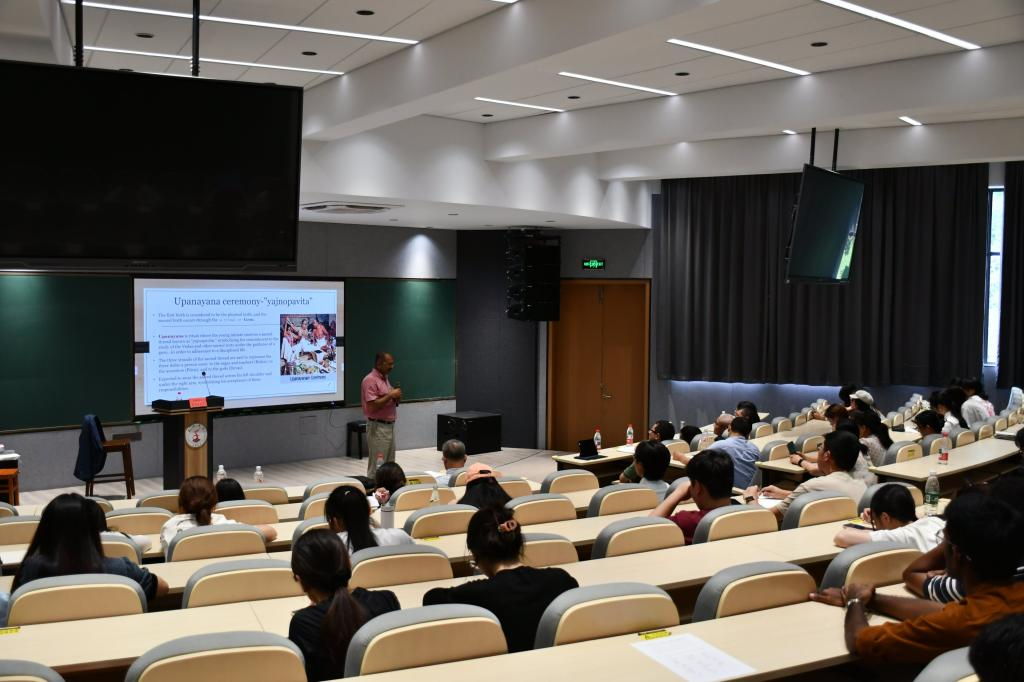Associate Professor Uddhab Pyakurel, Vice Dean of the Faculty of Humanities at Kathmandu University, was invited on the morning of July 1st to deliver an academic lecture titled “Society and Politics in South Asia: The Case of Nepal” in Lecture Hall A6. Wang Gang, Dean of the School of Foreign Languages at Taizhou University, Ma Junzhou, Deputy Director of the International Exchange Office, as well as faculty and students from the School of Humanities and the School of Foreign Languages attended. The lecture was hosted by Professor Luo Zhengming, Dean of the School of Humanities.
At the beginning of the lecture, Pyakurel briefly introduced Nepal and Kathmandu University, expressing hope for future cooperation with Taizhou University to enhance mutual understanding and create more possibilities for collaboration.
Starting from Asia, Pyakurel discussed the physical geography of Asia, particularly Nepal, as well as the cultural connotations and sociology of Asia. He then provided an accessible introduction to various aspects of the Nepalese region, including ethnic groups, languages, social governance, and government management.
Regarding “caste,” Pyakurel emphasized its four main characteristics: First, caste is a social division rule within Hindu society. Second, caste is hereditary, determined by birth and unchangeable, possessing immobility. Third, “purity” is the core criterion for hierarchical classification within the caste system, with at least four levels. Fourth, there are strict customs and norms within castes, prohibiting inter-caste marriage as a way to maintain “purity,” and implementing “untouchability” towards the lowest caste.
Additionally, Pyakurel discussed issues related to identity and social structure and shared his views.
Regarding social governance and culture within the social system of Hinduism and its caste system, Pyakurel analyzed a series of concepts such as “Karma,” “reincarnation,” “sin,” and “initiation ceremony” (Upanayana). He stated that these Hindu cultural traditions, as part of South Asian culture, continue to persist in South Asian societies. Caste is a major social component, and the caste system remains a very powerful social phenomenon with profound influence in Nepal and other South Asian countries.
Finally, using Nepal, a multicultural country, as an example, Pyakurel explored the impact of linguistic diversity on society and politics.
During the interactive Q&A session, faculty and students engaged in lively discussions with Pyakurel on issues such as the persistence of the caste system, Nepal’s secularization process, and how Nepal and China can establish good international relations.
Luo Zhengming provided a brief summary of Pyakurel’s lecture, noting that Nepal is an important country along the “Belt and Road” initiative, and Kathmandu University is one of the most prestigious universities in Nepal. He expressed hope that this exchange would promote cooperation between the two institutions in academics, scientific research, and student cultivation.

Faculty and students attending the lecture
This lecture not only enhanced the understanding of faculty and students regarding the politics and society of Nepal but also promoted exchange and cooperation between Taizhou University and Kathmandu University, playing a positive role in maintaining friendly cooperative relations between the institutions.